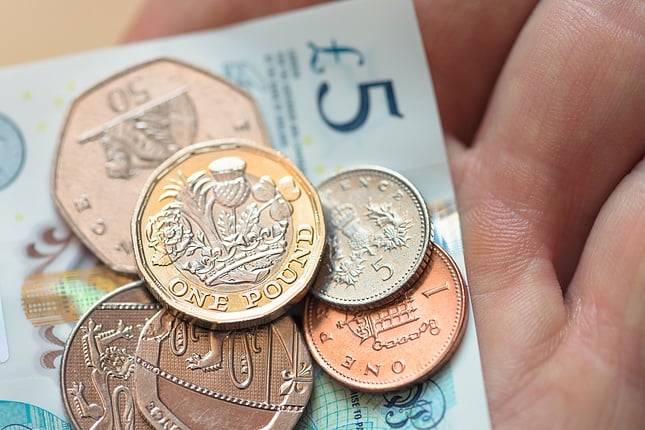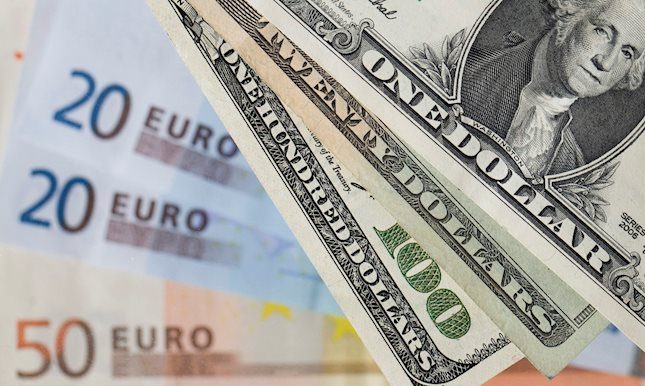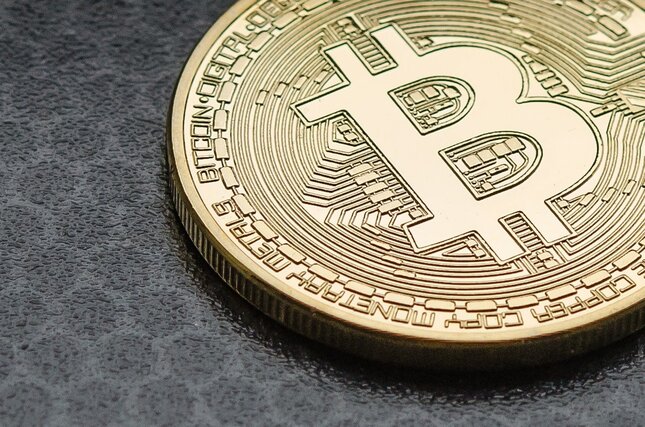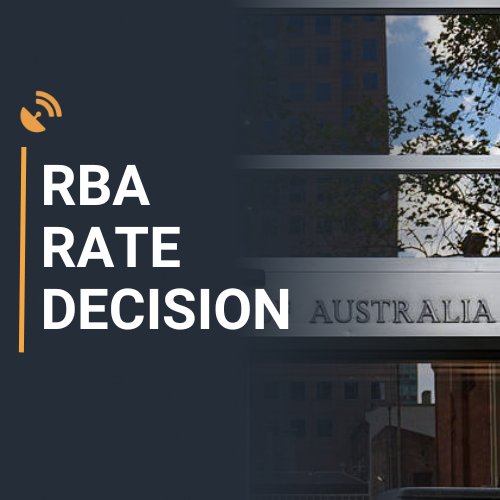- GBP/USD depreciates due to risk aversion amid rising geopolitical tensions in the Middle East.
- The US Dollar receives support as Treasury yields continue to gain ground.
- The BoE advocates a cautious approach to reducing rates, considering the persistently high inflation in the services sector.
GBP/USD extends its losing streak for the third consecutive day, trading around 1.3200 during the Asian session on Thursday. The risk-sensitive GBP/USD pair receives downward pressure due to the safe-haven flows amid escalating Middle-East tensions.
The Israeli Broadcasting Authority (IBA) reported that Israel's security cabinet has decided to issue a strong response to the recent Iranian attack. On Tuesday night, Iran launched over 200 ballistic missiles and drone strikes on Israel.
The improved US Treasury yields are supporting the US Dollar and undermining the GBP/USD pair. The US Dollar Index (DXY), which measures the value of the US Dollar (USD) against its six major peers, continues to gain ground for the fourth successive session. The DXY trades around 101.80 with 2-year and 10-year yields on US bonds standing at 3.65% and 3.79%, respectively, at the time of writing.
On the data front, the ADP US Employment Change reported an increase of 143,000 jobs in September, exceeding the anticipated 120,000 jobs. Furthermore, annual pay increased by 4.7% year-over-year. The total number of jobs added in August was revised upward from 99,000 to 103,000.
The Bank of England (BoE) has been advocating a cautious approach to reducing interest rates, considering the still-high inflation in the services sector and relatively robust economic growth. In its quarterly statement released on Wednesday, the BoE's Financial Policy Committee (FPC) noted that “risks to UK financial stability are broadly unchanged since June.”
BoE policymaker Megan Greene warned that a consumption-driven recovery in the United Kingdom (UK) could trigger a new wave of inflation. However, Greene noted that further interest rate cuts are likely, as prices are "moving in the right direction."
Pound Sterling FAQs
The Pound Sterling (GBP) is the oldest currency in the world (886 AD) and the official currency of the United Kingdom. It is the fourth most traded unit for foreign exchange (FX) in the world, accounting for 12% of all transactions, averaging $630 billion a day, according to 2022 data. Its key trading pairs are GBP/USD, also known as ‘Cable’, which accounts for 11% of FX, GBP/JPY, or the ‘Dragon’ as it is known by traders (3%), and EUR/GBP (2%). The Pound Sterling is issued by the Bank of England (BoE).
The single most important factor influencing the value of the Pound Sterling is monetary policy decided by the Bank of England. The BoE bases its decisions on whether it has achieved its primary goal of “price stability” – a steady inflation rate of around 2%. Its primary tool for achieving this is the adjustment of interest rates. When inflation is too high, the BoE will try to rein it in by raising interest rates, making it more expensive for people and businesses to access credit. This is generally positive for GBP, as higher interest rates make the UK a more attractive place for global investors to park their money. When inflation falls too low it is a sign economic growth is slowing. In this scenario, the BoE will consider lowering interest rates to cheapen credit so businesses will borrow more to invest in growth-generating projects.
Data releases gauge the health of the economy and can impact the value of the Pound Sterling. Indicators such as GDP, Manufacturing and Services PMIs, and employment can all influence the direction of the GBP. A strong economy is good for Sterling. Not only does it attract more foreign investment but it may encourage the BoE to put up interest rates, which will directly strengthen GBP. Otherwise, if economic data is weak, the Pound Sterling is likely to fall.
Another significant data release for the Pound Sterling is the Trade Balance. This indicator measures the difference between what a country earns from its exports and what it spends on imports over a given period. If a country produces highly sought-after exports, its currency will benefit purely from the extra demand created from foreign buyers seeking to purchase these goods. Therefore, a positive net Trade Balance strengthens a currency and vice versa for a negative balance.
Information on these pages contains forward-looking statements that involve risks and uncertainties. Markets and instruments profiled on this page are for informational purposes only and should not in any way come across as a recommendation to buy or sell in these assets. You should do your own thorough research before making any investment decisions. FXStreet does not in any way guarantee that this information is free from mistakes, errors, or material misstatements. It also does not guarantee that this information is of a timely nature. Investing in Open Markets involves a great deal of risk, including the loss of all or a portion of your investment, as well as emotional distress. All risks, losses and costs associated with investing, including total loss of principal, are your responsibility. The views and opinions expressed in this article are those of the authors and do not necessarily reflect the official policy or position of FXStreet nor its advertisers. The author will not be held responsible for information that is found at the end of links posted on this page.
If not otherwise explicitly mentioned in the body of the article, at the time of writing, the author has no position in any stock mentioned in this article and no business relationship with any company mentioned. The author has not received compensation for writing this article, other than from FXStreet.
FXStreet and the author do not provide personalized recommendations. The author makes no representations as to the accuracy, completeness, or suitability of this information. FXStreet and the author will not be liable for any errors, omissions or any losses, injuries or damages arising from this information and its display or use. Errors and omissions excepted.
The author and FXStreet are not registered investment advisors and nothing in this article is intended to be investment advice.
Recommended content
Editors’ Picks

GBP/USD falls hard toward 1.3150 on Bailey's dovish remarks
GBP/USD extends its sell-off toward 1.3150 in the early European session on Thursday. The pair faces fresh supply after BoE Governor Andrew Bailey said that the central bank could become 'more activist' on rate cuts if inflation eases. Mideast concerns-led risk aversion also weighs on the pair.

EUR/USD flirts with three-week lows, nears 1.1000 on USD strength
EUR/USD is dropping toward 1.1000 in the European morning on Thursday, testing three-week lows. Sustained US Dollar strength, on fading outsized Fed rate cut bets and Middle East escalation, weighs on the pair. Meanwhile, increased bets for a 50 bps Oct ECB rate cut undermine the Euro.

Gold keeps the red on bullish USD, Middle East tensions to limit deeper losses
Gold price (XAU/USD) attracts fresh sellers following the overnight bounce from the $2,641 area and remains on the defensive heading into the European session on Thursday. The US Dollar (USD) prolongs its goodish recovery move from the lowest level since July 2023 and advances to a three-week high amid diminishing odds for a more aggressive policy easing by the Federal Reserve (Fed).

Is Bitcoin a safe haven amid Middle East tensions? Here's what you need to know
Bitcoin has shaved 6% of its value since Iran's missile attacks on Israel. Gold has surged amid Bitcoin's plunge in the midst of geopolitical tensions.

RBA widely expected to keep key interest rate unchanged amid persisting price pressures
The Reserve Bank of Australia is likely to continue bucking the trend adopted by major central banks of the dovish policy pivot, opting to maintain the policy for the seventh consecutive meeting on Tuesday.

Five best Forex brokers in 2024
VERIFIED Choosing the best Forex broker in 2024 requires careful consideration of certain essential factors. With the wide array of options available, it is crucial to find a broker that aligns with your trading style, experience level, and financial goals.